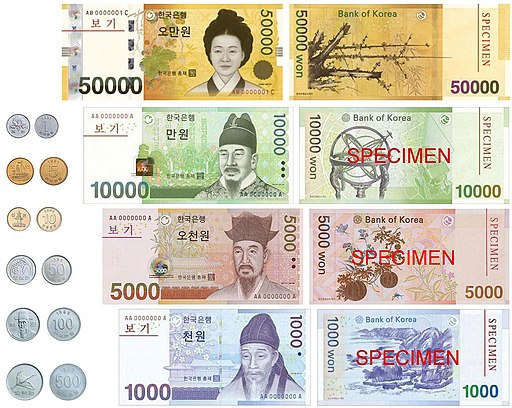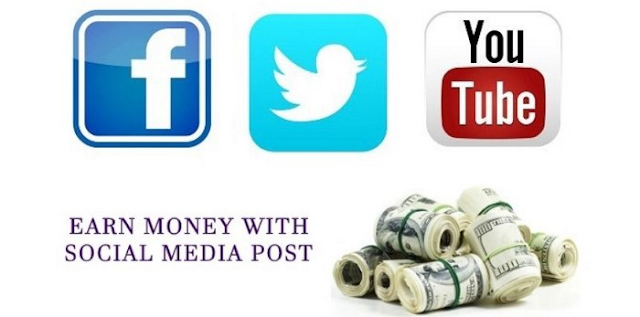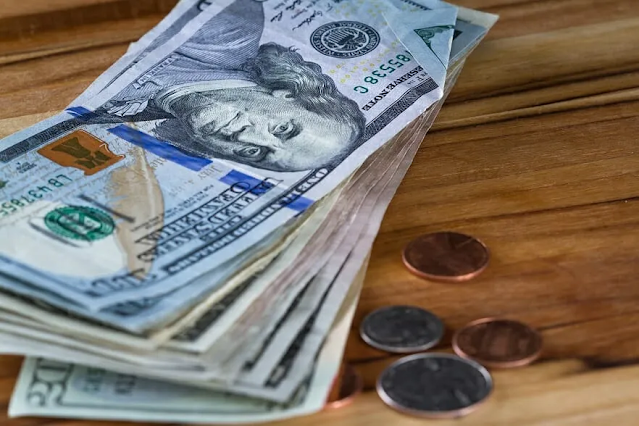This article may be helpful for you if you are traveling to Korea or want to broaden your understanding of Korean currency.
If you want to start a business, travel, or just have the chance to settle down elsewhere, you need to be aware of the currency of that location.
South Korea uses the Korean Won as its official currency. One Won can be further divided into 100 Jeon, the lowest unit of currency. However, you hardly ever encounter that monetary unit.
As one US dollar ($1.00) is generally equivalent to 1,000 Korean won (1,000), the standard exchange rate in this country is 1 USD to 1,000 KRW. Daily fluctuations occur in the value of the Korean Won.
Both South and North Korea use the official name, "Won." The Hanja character, which resembles the Chinese Yuan and Japanese Yen, is thought to be the source of this name. Their worth is very different from both, though. Only 0.01 Chinese Yuan (CNY) and 0.10 Japanese Yen (JPY) are exchangeable for one Korean won (CNY).
XEM THÊM :
Bật mí ngay những kỹ thuật chơi sâm lốc online hay
History
The Spanish-American silver dollar served as the foundation for the Korean won, Chinese yuan, and Japanese yen. The Korean Yen, which was equivalent to the Japanese Yen under Japanese occupation, took the place of the Won. The division of the Korean Peninsula following World War II led to the creation of two distinct currencies, with the South Korean Won initially being divided into 100 Jeon. At first, there was a set exchange rate between the won and the dollar, at a ratio of 15 won to 1. Multiple conflicts in Korea led to a string of devaluations. Then Hwan came in to take the place of the first South Korean Won.
On June 10, 1962, Won was debuted once more. It cost 125 Won ($1) when it was reintroduced. As part of the 1997 Asian Financial Crisis, the Won was devalued to approximately half of its value soon after a deal was made with the International Monetary Fund.
Denomination Of Notes
The Bank of Korea issues notes in four different note types and denominations. Both North and South Korea employ them. 1,000, 5,000, 10,000, and 50,000 won are the starting amounts. As they ascend, the note's size increases as well. The 5,000 Won bill is marginally bigger than the 1,000 Won bill, while the 10,000 Won bill is marginally bigger than the 5,000 Won bill.
Are Foreign Currencies Accepted In South Korea?
Credit card use is the most common method of transaction in South Korea. Master Card, American Express, Diners' Club, and JCB are frequently used for it. Only approximately 20% of financial transactions in Korea, according to the Bank of Korea, are made in cash. The remainder is completed with credit and debit cards. They hope to make Korea cashless very soon with the introduction of T-money.
Credit cards are accepted for many services. However, it is also easy to exchange US dollars for Korean Won in South Korea. But please remember that significant exchange locations require monetary cash. Money exchange is possible in banks, some hotels, airports, and specialized exchange offices in addition to these locations.
Use of your Visa, Mastercard, and traveler's checks practically everywhere in South Korea is the most practical method. Be aware that not all ATMs will accept foreign cards if you use your debit card. Always look for the word "Global" on ATMs to see which one offers that.
Mobile payments are widely used in Korea as it is an urbanized, contemporary, cosmopolitan city with a young population taking over successful enterprises and shops. You can safely leave your credit card at your hotel by loading it up with mobile payments. Keep some cash on hand as well for smaller tips, local eateries, and street food.
T-money cards are also becoming popular in South Korea as a convenient way to pay for taxis, buses, and subway rides. T-money cards are increasingly used to pay at restaurants and for retail purchases.
Similar to a debit card, it is linked to your bank and automatically deducts funds whenever you make a payment. Using your smartphone and the T-money card, you can make purchases with just a few taps. T-money cards, which cost less than $4 and offer additional savings on shopping and tourist activities, are encouraged by South Korea among travelers.
What Must You Know About Korean Exchange Before Traveling To Korea?
Any quantity of foreign cash may be imported into South Korea in accordance with customs regulations. If the money is worth more than $10,000 or its equivalent in another currency, it must be declared; otherwise, if it is discovered without being declared, it will be seized and the offender will be fined.
When importing from $10,000, the quantity of foreign currency funds must be exported in an amount equal to the amount imported, with any difference receiving free money.
Amounts more than 8 million won cannot be exported or imported. When you leave the nation, you can exchange the leftover cash, but you must have a local bank certificate confirming the transaction in order to do so. One cannot swap more than $100 if the exchange takes place without the certificate. This will help you stay out of trouble while you're on vacation.
Read Article:





Comments
Post a Comment